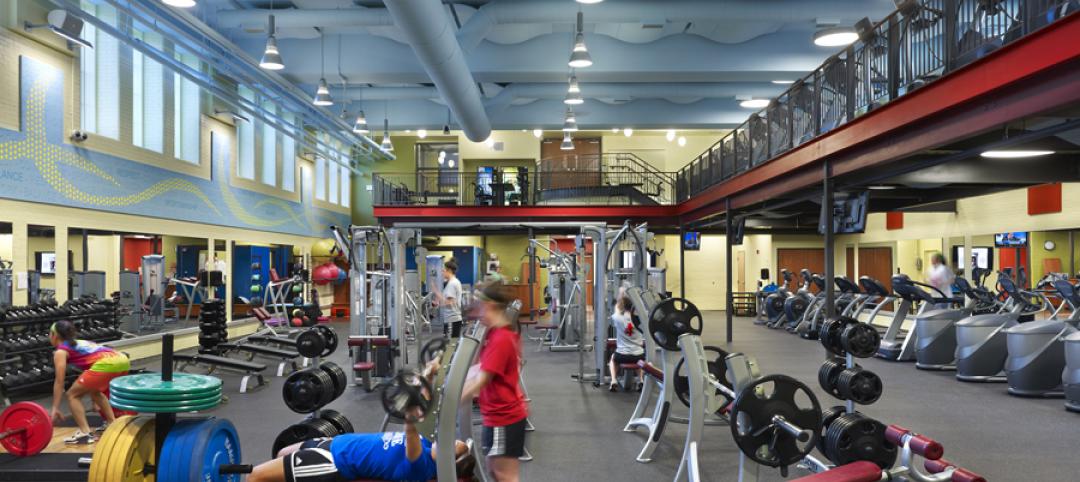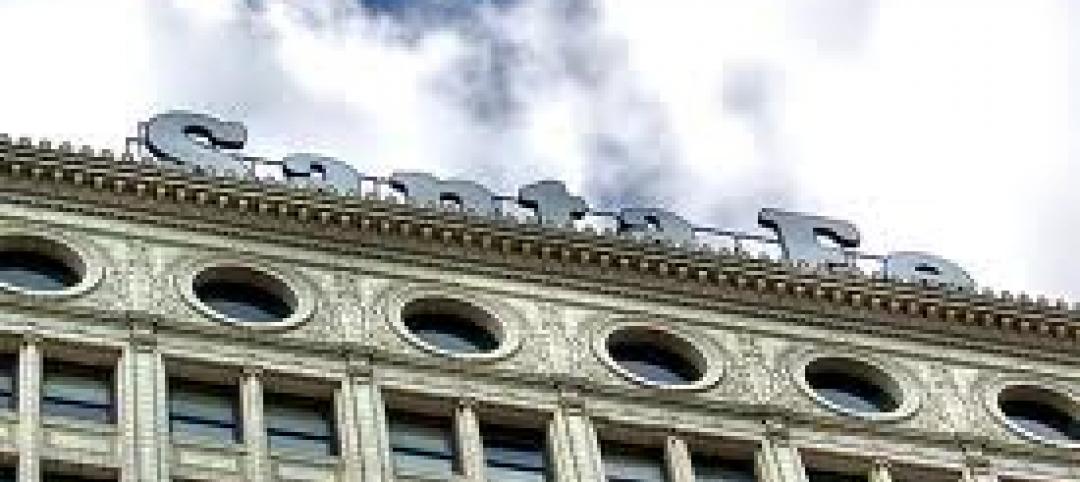The American Society of Civil Engineers estimates that the United States needs to spend $3.6 trillion by 2020 just to bring the country’s infrastructure back to a level described as adequate.
A new report by Transwestern, a privately held real estate firm, makes a case that investing in infrastructure can also be beneficial to surrounding commercial real estate. Called “Cranes and Lanes,” the report identifies major infrastructure projects in nine markets, and describes how the projects are impacting—or are likely to impact—the larger built environment.
“Cities have recognized that in order to stay competitive and generate economic development, the city’s infrastructure must keep up,” adds Brian Landes, a GIS expert and the report’s author. “While projects analyzed in the report run the gamut from new stadiums to reworked interchanges to entirely new districts, they do have one thing in common: a relatively certain boost in rents and occupancy.”
Several of the projects cited revolve around transit, such as the ongoing Modernization Project at Chicago’s O’Hare Airport, which Transwestern sees as a “catalyst for economic growth and job creation.” But there are a number of nonresidential building projects that are also expected to lead to ancillary development and construction.
Examples include:
• SunTrust Park, the new stadium for Major League Baseball’s Atlanta Braves designed by Populous, which should be completed next year. Transwestern says this stadium will bring with it a $400 million shopping, dining and entertainment district, as well as a new Omni Hotel and a 300,000-sf office building that Comcast will occupy.
• Seaport Square is a new neighborhood created from 23 acres of undeveloped land in South Boston’s emerging Seaport District. When it’s completed next year, it will encompass 2.75 million sf of residential, 1.25 million sf of office, 1.25 million ft of retail, 800,000 sf of hotels, 265,000 sf of cultural and civic space, and 2.25 million sf of parking. “The district will spur an evolution of Downtown Boston and shift the commercial center to the south and east,” the report states.
• Hudson Yards is the redevelopment of a vacant former industrial neighborhood along the West Side of Manhattan in New York City. It traces its roots to a 2005 rezoning aimed to transition the area into an extension of the Midtown business district. The project will eventually feature 6 million sf of office, 750,000 sf of retail, 5,000 apartments, 2 million sf of hotel and 14 acres of public space. Completion 2018.
• In San Francisco, Transbay District is currently under development. It will eventually house an intermodal transportation destination and 6 million sf of new office space. The new transit center will house three transportation options: (1) Caltrain will extend its terminus further downtown into the Transbay Transit Center; (2) The center will be the terminus for the future California High Speed Rail Line; and (3) the center will be the hub for regional bus service. Amidst the office build-out will be Salesforce Tower, the corporate headquarters for Salesforce and the second tallest building in the Western U.S. Completion 2020.
• Oakland Global Trade & Logistics Center will sit adjacent to the Port of Oakland on an Army base decommissioned in 1999. The project will bolster the West Coast’s third-largest port by adding an intermodal rail hub, additional railyards, a bulk terminal and more than 1 million sf of warehouse and distribution space. The project, which should be done next year, comes at an important time for the Port of Oakland, which moved nearly 2.3 million containers in 2015 and whose volume is expected to grow in the coming years.
Related Stories
| Jun 8, 2012
Allsteel names Kris Yates to head architectural products group
Yates is responsible for the start up, launch and ongoing sales and marketing of Allsteel’s new Beyond movable walls.
| Jun 8, 2012
Chestnut Hill College dedicates Jack and Rosemary Murphy Gulati complex
Casaccio Yu Architects designed the 11,300-sf fitness and social complex.
| Jun 7, 2012
Waterline exhibition displays visions for re-thinking the Chicago River
The designs of Waterline showcase why the Chicago River should once again be considered the city’s most important asset and sets the stage for increased awareness, education and reinvention of the River.
| Jun 7, 2012
WDMA and FMA to affiliate and integrate operations
Over the coming months both organizations will begin the process of formalizing the details of the agreement for final approval by both organizations, with the formal change expected to take effect in January 2015.
| Jun 7, 2012
Craig joins Cannon Design as associate principal
Craig will work closely with the firm's Corporate/Commercial Interiors leadership to help facilitate initiatives that strengthen awareness around workplace innovation and offer counsel on strategic workplace decisions.
| Jun 7, 2012
Stantec publishes 2011 corporate Sustainability Report
Stantec's fifth annual Sustainability Report was prepared in accordance with the internationally recognized G3.1 Sustainability Reporting Guidelines, developed by the Global Reporting Initiative.
| Jun 6, 2012
KPF designs tower for Yongsan IBD
The master plan, created by Studio Daniel Libeskind, is a dynamic urban environment containing contributions from 19 different architects practicing in diverse locations around the globe.
| Jun 6, 2012
SOM urges Chicago tenants to partner with landlords to cut energy use
Tenants can exceed building energy challenge targets recently announced by Mayor Emanuel.
| Jun 6, 2012
KLMK Group awarded contract with Parkland Health & Hospital System in Texas
KLMK will also provide planning guidance in all aspects of the project related to facility activation.
| Jun 5, 2012
Cannon Design joins forces with Peter Ellis New Cities
Peter Ellis will now lead Cannon Design's urban planning and city design practice in collaboration with the firm's executive leadership.
















